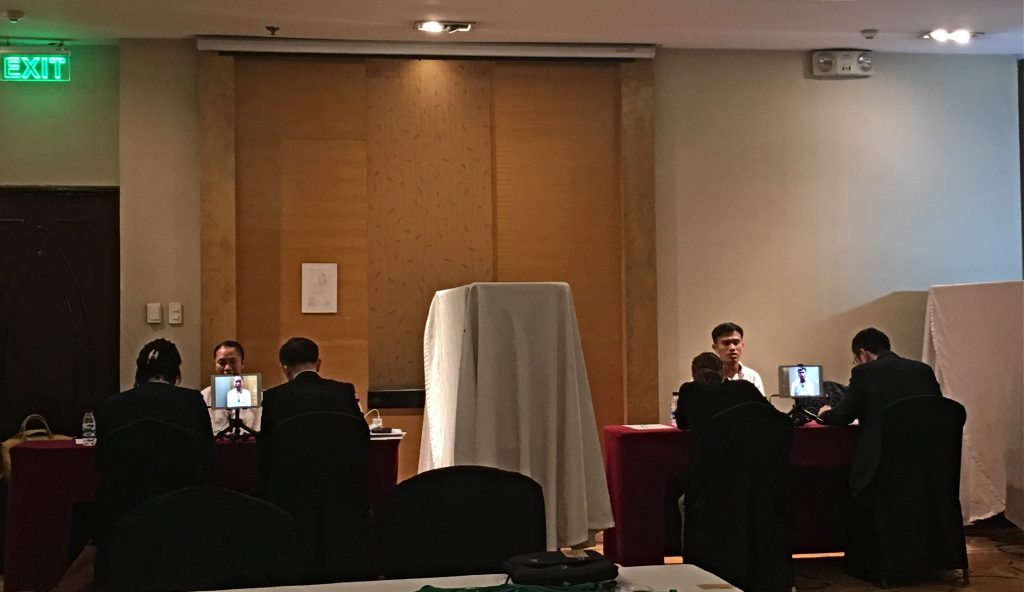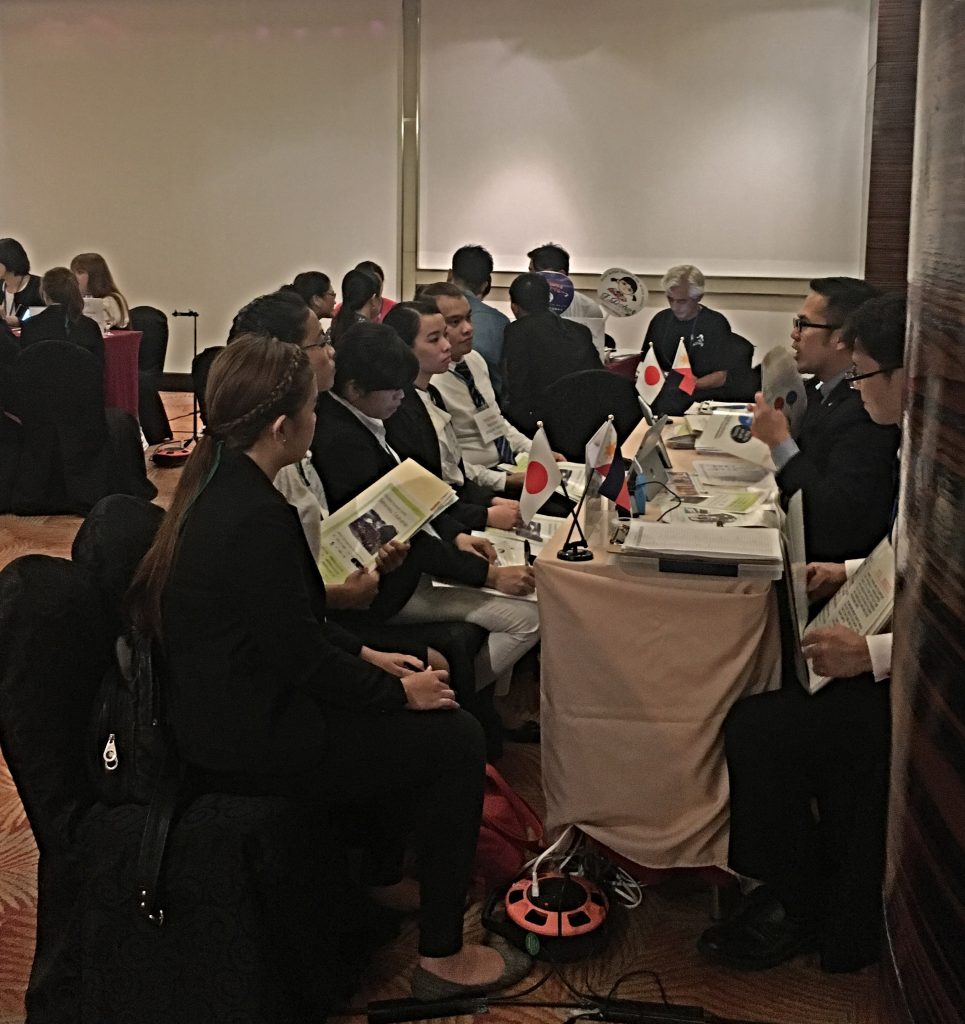国家が作るインド料理――IHMムンバイ校にみる調理教育と標準的インド料理の形成――
対象とする問題の概要 本研究が対象とするのは、多様な宗教・階層・地域に根ざすインドの料理文化が国家主導の近代的な教育制度のもとでいかに「インド料理」として標準化・再構築されているのかという問題である[Appadurai 1988]。インド…

This study focuses on the care work of Filipino immigrants in Japan. For this fieldwork I looked at the state-mediated immigration of Filipino nurses and care workers through the Japan-Philippines Economic Partnership Agreement (JPEPA) by observing their job fair applicant interviews conducted annually by the Japan International Corporation of Welfare Services (JICWELS) and the Philippine Overseas Employment Agency (POEA).
The research aims to contribute to the understanding of the globalization of care in Asia through the context of sending care workers and skilled health workers from the Philippines to Japan. This fieldwork aimed to understand the human resource acquisition process organized by the two governments, the motivations for hiring Filipino workers by Japanese welfare companies, and individual stories of the Filipino immigrants themselves.

From July 18 to 26, I observed the seven-day job fair and interview process of Filipino nursing and care worker applicants organized by the JICWELS and POEA in Crowne Plaza in Ortigas, Manila. The job fair included about 120 Japanese welfare companies and about 700 nursing and care worker applicants. These companies conducted marketing orientations about available work opportunities and what it is like to work in Japanese nursing homes. They also conducted informal interviews of applicants to get to know them personally for the employer-employee matching process—a two-way selection process that allows applicants to move forward in the recruitment process. Most companies have brought with them their Filipino employees who have also been recruited through the JPEPA, to assist in the orientation and question and answer session with the applicants.
Meanwhile, the applicants also underwent video-recorded interviews with JICWELS, which were used as a basis for their selection in the program. Their backgrounds are very diverse; many have non-nursing and care work backgrounds and are willing to make a career shift to be able to work and earn in Japan. Out of the 700 applicants, only about 300 will be selected for deployment to Japan in June 2019. Common motivations for working in Japan include earning salaries higher than their current incomes in the Philippines to support their families, securing better work opportunities, and experiencing a new life, culture, and environment as immigrants. Despite opportunities available to them to work as care workers in other countries, preference for Japan is driven mainly by the country’s positive image among the applicants, such as safety, innovation, and technology, and high tourist appeal. Some of the applicants who have been to Japan have done so as language students and did arubaito as care workers, another strategy employed by NPOs and recruitment agencies in the Philippines and Japan to provide informal labor while circumventing the work immigration process.
Toward the end of the fieldwork, I was able to meet with Mr. Takashi Tsunoda, Managing Director of JICWELS, and Rosemarie Duquez, Esq., Director of government placement at POEA. Follow-up fieldwork might be planned to see how the JPEPA process will change when more Filipino care workers are able to come to Japan as trainees through the Technical Internship Trainee Program (TITP), which began in September 2018.
The results of this fieldwork will be used for two research papers I will present at the International Conference on New Frontiers in Japanese Studies[1] at the University of Melbourne on September 17–19, and in the 2nd Kyoto University–Universitat Hamburg Symposium[2] at Kyoto University on October 9–11.
For my next fieldwork, I will be observing Filipino care workers in their actual places of work in Japanese nursing homes in Kansai to see their interactions with elderly Japanese and with their co-workers. I plan to explore the dynamics of care work through the concept of bodies and intimacies, and how these are constructed and negotiated in the performance of care work as body work and intimate labor by non-Japanese careers.
[1] The research paper is titled “Filipino Migrant Care Workers in Japan: Transforming Intimacies and Caring Practices in Japanese Intimate Spaces.”
[2] The research paper is titled “Caring Bodies in Mobility: The Appropriation of the Caring Labors of Filipinos in Japanese Elderly Care Settings.”
Copyright © 附属次世代型アジア・アフリカ教育研究センター All Rights Reserved.